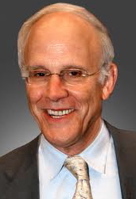Nobel Laureate to Lecture April 12
Nobel Laureate David Gross, who with two others won the 2004 physics prize for explaining how the elementary constituents of the atomic nucleus are bound together, will lecture at UALR 4 p.m. Thursday, April 12, in Dickinson Hall Auditorium.
Gross will present his lecture, “The Frontiers of Fundamental Physics,” in which he will describe some of the questions that scientists ask and some of the proposed answers. He also will discuss what it might mean to have a final theory of fundamental physics and whether mankind is capable of discovering it.
 Gross, a professor of physics and director of the Kavli Institute for Theoretical Physics at the University of California, Santa Barbara, was at UC when he and two colleagues won the Nobel for physics.
Gross, a professor of physics and director of the Kavli Institute for Theoretical Physics at the University of California, Santa Barbara, was at UC when he and two colleagues won the Nobel for physics.
The award recognized the key discovery that explained how quarks, the elementary constituents of the atomic nucleus, are bound together to form protons and neutrons.
In 1973, Gross and another colleague working at Princeton demonstrated that the attraction between quarks grows stronger as the quarks are separated. This discovery, known as “asymptotic freedom,” established quantum chromodynamics (QCD) as the correct theory of the strong nuclear force, one of the four fundamental forces in nature.
According to the Royal Swedish Academy of Sciences, the “discovery was expressed in 1973 in an elegant mathematical framework that led to a completely new theory, QCD.” With this discovery, physics was brought one step closer to fulfilling Albert Einstein’s grand dream, a unified theory for everything.
Gross received his Ph.D. from the University of California, Berkeley in 1966 and then was a Junior Fellow at Harvard. In 1969 he went to Princeton and was later appointed professor of physics in 1972.
He is the recipient of numerous awards including the J. J. Sakurai Prize of the American Physics Society in 1986, a MacArthur Foundation Fellowship Prize in 1987, the Dirac Medal in 1988, the Oscar Klein Medal in 2000, the Harvey Prize of the Technion in 2000, the Grand Medalle D’Or – France’s highest scientific honor, and the High Energy and Particle Physics Prize of the European Physical Society in 2003.